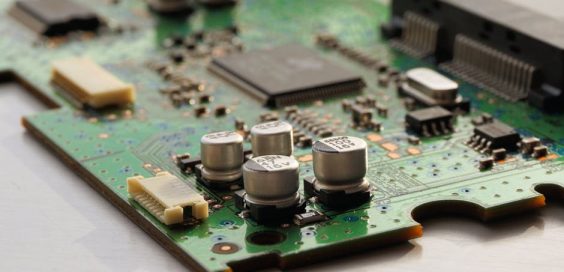5 useful gadgets for learning computer science
Written by Mel // May 2, 2017 // Tech Reviews // Comments Off on 5 useful gadgets for learning computer science

It seems that one cannot even glance at the news headlines without seeing some reminder of the importance of computer science to our daily lives in today’s ever-more technologically sophisticated world. As outlined by Prospects, computer science degrees also offer a wide range of job options, from application analyst and business analyst to IT consultant and web developer.
But whether you are only just getting into the dizzying world of computer science for the first time or you would like to add to what may already be a fairly strong body of knowledge, what are just five of the best gadgets for getting to grips with this immensely stimulating field?
- Raspberry Pi
When it comes to small single-board computers, many people still struggle to see past the Raspberry Pi, and with good reason. It has spawned a huge range of iterations since the first version broke cover in 2012, and with The Verge reporting that more than 12.5 million of them have been sold since then, it’s not surprising that there’s a healthy support community as well.
The emergence of comprehensive online stores dedicated to the Raspberry Pi, such as The Pi Hut, has only made it even easier to acquire not only a Pi, but also everything else that you could conceivably need to get the most out of yours.
- Huawei HiKey 960
Set for release in May for a price that converts to roughly £185, this collaboration between the Chinese smartphone manufacturer and Google presents developers with the opportunity to run Android without having to purchase a smartphone, tablet or Android TV device.
As reported by TechRadar, teams at not only Huawei and Google, but also ARM, Archermind and LeMaker have worked together to enable Android developers to code on a device using an ARM-based chip, much like many of the other devices that run Android apps. 
- Orange Pi Plus
Little attempt has been made with the name to hide that the Orange Pi began life as a Raspberry Pi clone. However, it does offer many of the Raspberry Pi’s strengths, including an online forum and support community and a broad range of models from which to choose.
Just consider the Orange Pi Zero, for instance. It’s perfect when you’re just getting started creating with technology, rather than merely consuming it. It can run Android 4.4, Ubuntu and Debian, and can be used to build a computer, wireless server, games, music… you name it.
- BBC micro:bit
The micro:bit has been described as the BBC’s most ambitious education initiative for three decades, building on the heritage of the BBC Micro that introduced so many children to computing for the first time in the 1980s.
Like the Raspberry Pi, the micro:bit is aimed primarily at schools, and combines a 32-bit ARM Cortex processor with a built-in 5×5 LED matrix providing 25 individually programmable red LEDs for use as a display.
- Banana Pi M3
Yes, if you’re in the market for a credit card-sized single-board computer and the Raspberry Pi and Orange Pi are both failing to do it for you, you’ve always got the option of the Banana Pi.
The Banana Pi M3 incorporates an octa-core processor, 2GB of RAM, Gigabit Ethernet and two USB 2.0 ports, and while it’s expensive compared to the many of the alternative options, buyers can at least be assured of getting a specification to match.
Physicians will often recommend their patients to keep on with the Propecia prescription or Propecia men’s health buy propecia 1 mg or This can in turn explain the widespread proliferation of the same synthetic drug through the online pharmacies.
As you can see from the above, you will have no reason to claim a lack of options when you are looking for the perfect gadget with which to learn computer science for the first time.


